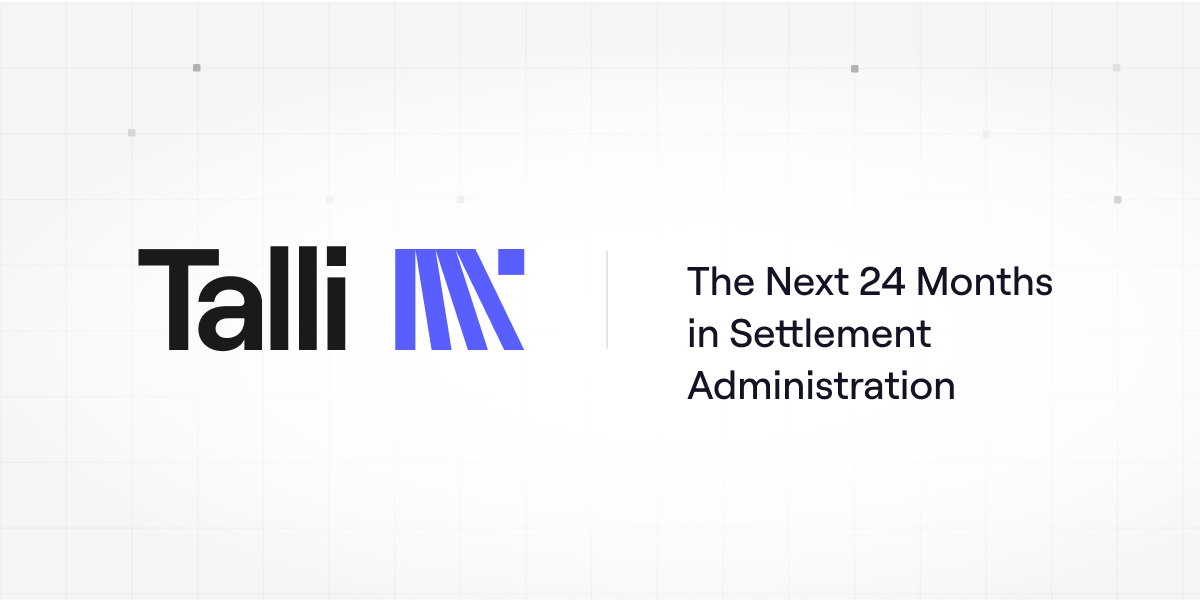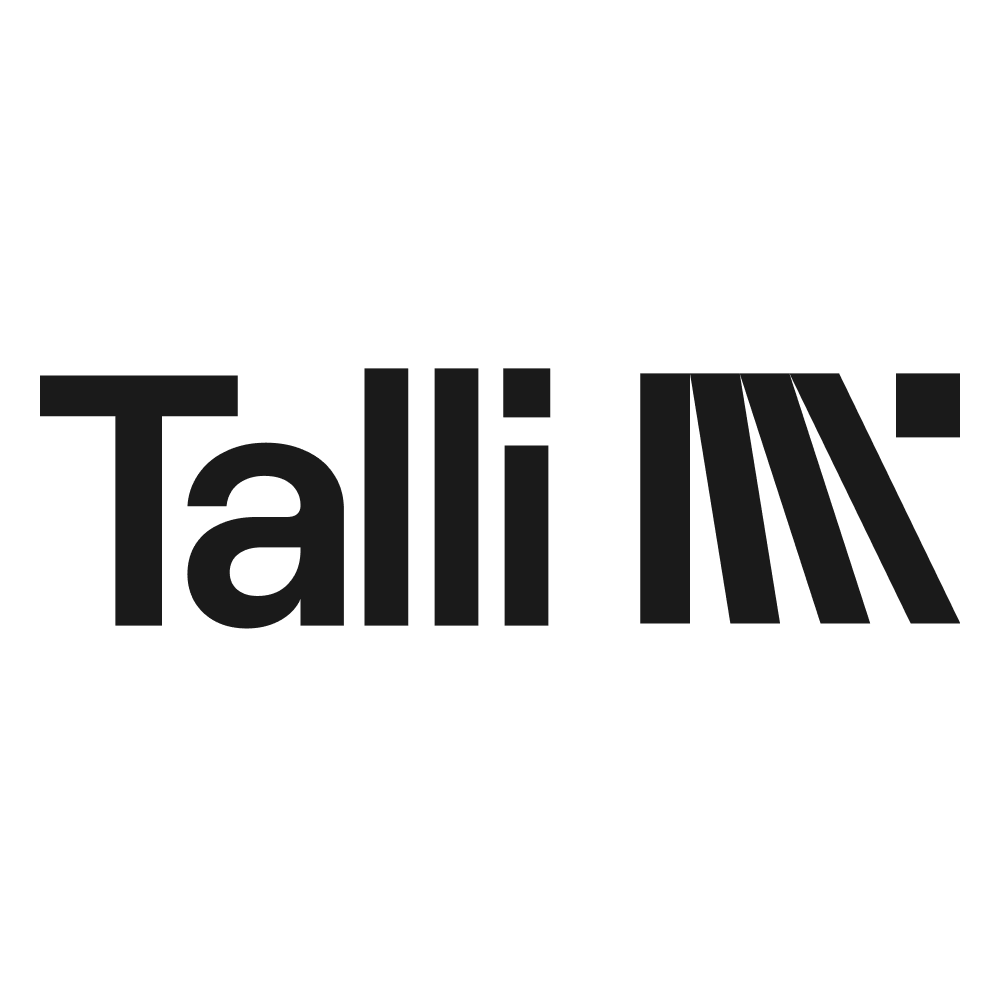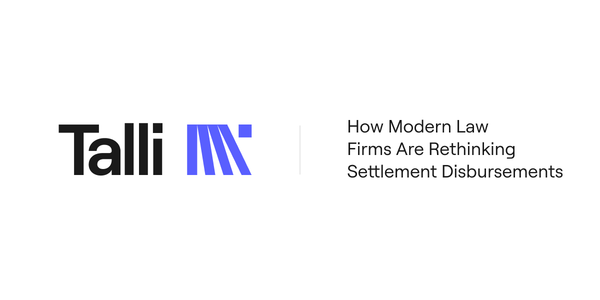The Next 24 Months in Settlement Administration - 5 Shifts Administrators Can’t Afford to Miss

Settlement administration is experiencing its most significant transformation in decades. While the legal industry has traditionally been slow to adopt new technologies, mounting pressures from courts, claimants, and economic realities are accelerating change.
We're witnessing a shift in how class actions, mass torts, securities settlements, and restitution funds are managed worldwide.
By 2027, digital-first processes, AI-powered workflows, and real-time analytics will be the industry standard.
The administrators and law firms that embrace these changes now will deliver superior outcomes for claimants while those that resist may find themselves struggling to meet basic court and regulatory expectations.
Here are the five critical trends that will define the future.
1. Instant & Digital Payouts Become the Standard
The era of waiting for paper checks is ending. Settlement administrators worldwide are embracing instant digital disbursements that deliver funds in minutes rather than months.
Real-Time Payments Infrastructure
The launch of the Federal Reserve's FedNow service in July 2023 marked a turning point for U.S. settlement administration (Western Alliance Bank & Digital Disbursements, 2024). This 24/7 real-time payment system eliminates business-day delays, enabling instant bank transfers at any hour. Early adopters report dramatically higher claimant satisfaction when funds arrive within minutes rather than weeks.
Platforms like Talli have built infrastructure to leverage these instant payment rails, enabling administrators to offer true real-time distributions that align with modern claimant expectations around payment speed.
Digital Wallet Revolution
Payment preferences have shifted decisively toward digital channels. When given a choice, 93% of claimants now opt for digital payment over paper checks (Western Alliance Bank & Digital Disbursements, 2024). This preference spans multiple digital options:
- Digital wallets like PayPal, Venmo, and Cash App offer instant access on familiar platforms
- Push-to-card transfers via Visa Direct and Mastercard Send deposit funds directly to existing debit cards
- Mobile wallet integration with Apple Pay and Google Pay enables immediate spending
Talli's unified payment approach exemplifies this flexibility, providing multiple digital options through a single platform while maintaining compliance and security standards. This choice-driven approach has proven crucial for maximising redemption rates.
The shift to digital disbursements delivers concrete operational improvements:
- Speed: Electronic transfers complete in hours versus 5-10 business days for check printing and mailing
- Cost: Digital payments cost $0.25-$0.75 per transaction compared to $1-$2+ for paper checks (B4B Payments, 2022)
- Success rates: Digital payments achieve 98% success rates versus 70-80% for paper checks
- Administrative savings: 40-60% cost reductions when claimants choose electronic options
These efficiency gains become even more significant at scale. The U.S. government's mandate to phase out paper checks for federal disbursements by late 2025 will accelerate private sector adoption as the infrastructure and expectations align.
2. Advanced Fraud Prevention Becomes Mission-Critical
The settlement administration industry faces an unprecedented fraud crisis that threatens the integrity of the entire system. However, innovative technology solutions are emerging to combat these threats effectively.
The Fraud Explosion
The statistics are that over 80 million settlement claims in 2023 showed signs of fraud - a 19,000% increase since 2021 (Reuters, May 2024). In some settlements, more than 80% of submitted claims were likely fraudulent.
Consider these recent examples:
- A car booster seat settlement with ~875,000 real purchasers received 3.3 million claims from fraudsters using bots and false identities
- The Grande Cosmetics case saw 6.5 million claims filed when only ~1 million customers were eligible, forcing administrators to invalidate the vast majority as fake
These schemes, run by organized groups using scripts, stolen personal data, and "click farms," threaten to siphon settlement funds intended for legitimate class members (JDSupra, June 2024).
Technology-Driven Defence Systems
The industry is fighting back with sophisticated fraud prevention tools deployed at every stage of claims processing:
Real-Time Pattern Analysis: Machine learning algorithms analyse IP addresses, device fingerprints, geolocation data, and submission patterns to flag anomalies. Systems can automatically detect clusters of claims from single IP addresses, unusually rapid submissions, or mismatches between identity and account information.
Multi-Layer Verification: When suspicious patterns emerge, claims are automatically held for manual review before any payments are issued.
Collaborative Defense: The "Anti-Fraud Triangle" platform, developed by Digital Disbursements and ClaimScore, blocked over 800 million fraudulent submissions in 2024, preventing more than $100 million in improper payouts (ABA Journal, February 2025).
Digital Identity Verification
Settlement administrators are implementing robust Know Your Customer (KYC) processes. Modern platforms automatically cross-check claimant data against government databases and watchlists in real-time.
These verification steps happen for legitimate claimants while creating significant barriers for fraudsters. Talli's platform integrates these security measures into the user experience, ensuring that KYC processes occur without adding friction for members.
Measurable Progress
The coordinated anti-fraud efforts are working. 2024 saw the first decline in fraudulent claims in years - a drop of approximately 40%- attributed to new fraud detection technology and vigilant claim filtering by administrators (Western Alliance Bank & Digital Disbursements, 2025).
Courts have taken notice as well, with some judges now delaying or denying settlement approval if there's evidence that fraud could overwhelm the process. Going forward, settlement agreements will likely include more detailed fraud-review protocols as standard practice.
3. Regulatory Pressure Drives Transparency and Accountability
Courts and regulators worldwide are demanding greater visibility into settlement outcomes, fundamentally changing how administrators operate and report their results.
Enhanced Court Oversight
The Northern District of California has pioneered formal Post-Distribution Accounting (PDA) requirements, mandating comprehensive reports within 21 days after settlement fund disbursement (N.D. California Procedural Guidance, 2022). These reports must detail:
- Total number of class members paid versus contacted
- Amount distributed versus total settlement fund
- Number of uncashed checks and their disposition
- Administrative costs and attorney fees
- Any problems encountered during distribution
This allows courts to evaluate whether settlements actually delivered meaningful benefits to class members. By mid-2027, we anticipate more courts adopting similar requirements nationwide, potentially through amendments to Rule 23. The 2018 amendments to Rule 23 explicitly recognized electronic notice (email, social media, SMS) as acceptable, moving beyond traditional postcard mailers. Judges increasingly suggest that electronic payments should be considered to boost class member participation.
Recent research shows that 74% of consumers want settlement funds delivered quickly and safely through direct deposit or prepaid cards rather than slow paper checks (Kroll Settlement Administration, 2020). Courts are responding by favoring settlements that use modern outreach methods and payment options designed to maximise actual participation.
Talli's multi-channel notice capabilities - combining email, SMS, and digital advertising - exemplify the kind of comprehensive outreach that courts increasingly expect to see in settlement proposals.
Global Regulatory Evolution
The EU's Representative Actions Directive, effective June 2023, requires all member states to enable collective actions.
As EU countries implement these procedures through 2024-2025, cross-border settlements will become more common, requiring multilingual notice capabilities and multi-currency distribution systems.
Privacy regulations like GDPR add complexity, requiring careful handling of claimant data with proper consent or legal basis. However, jurisdictions like Australia, Canada, and the U.K. are also modernising their class action procedures, creating potential for global convergence on digital-first settlement administration standards by 2027.
4. Claimant Experience Reaches Digital Service Standards
Today's claimants compare their settlement experience not to other legal processes, but to every digital service they use daily—from banking apps to e-commerce platforms. The industry is responding with user-centered design principles.
Mobile-First Design
With smartphone ownership near universal, settlement processes are being optimized for mobile devices. Claimants can now file claims, upload documents, and select payment methods entirely from their phones. Features include:
- Auto-fill claim forms with photo upload capabilities
- Mobile-friendly communication templates
- One-click payment redemption through familiar apps like PayPal and Venmo
This mobile focus is crucial since many claimants - especially younger demographics - interact exclusively via smartphone. Any administrator not offering seamless or inclusive mobile experiences will be at a significant disadvantage by 2027.
Personalised, language-appropriate messaging generates 40-60% higher response rates than generic English-only notices (Talli Blog, 2025).
SMS text reminders achieve high open rates - far higher than postal mail- and can include direct links to claim forms or payment portals.
Talli's personalized messaging system can deliver these targeted communications in multiple languages, with each message referencing specific case details to boost both engagement and legitimacy recognition. This immediate, accessible communication significantly improves engagement across diverse claimant populations.
Real-time status updates further enhance the experience.
Talli's live dashboard provides this transparency to both claimants and administrators, reducing customer service inquiries by 60-80% while building trust through complete visibility into the distribution process (Talli Blog, 2025).
5. AI-Powered Tech Stacks Transform Operations
The most significant change in settlement administration may be invisible to claimants but revolutionary for administrators - the complete digitisation and automation of back-office operations.
API-Driven Integration
Modern settlement platforms use APIs to enable seamless data flow between different systems. Law firms' case management systems can push approved claimant lists directly to payment platforms, while administrators send real-time status updates back to attorney dashboards.
Talli's External API enables bidirectional data flow - critical payment information flows automatically into administrators' CRM systems while distribution commands flow seamlessly to payment processors. This eliminates manual data entry errors and enables real-time updates across all connected systems.
AI-Powered Claims Processing
Artificial intelligence is revolutionising claims processing efficiency. AI systems can now:
- Automatically verify eligibility and calculate awards based on uploaded documentation
- Extract key data from documents using optical character recognition and natural language processing
- Flag inconsistencies or deficiencies for human review
- Process complex allocation formulas with multiple tiers or deductions
Administrators report that AI tools have cut manual processing hours by up to 75%, with accuracy rates exceeding 99% - better than manual processing (Talli Blog, 2025). These systems operate 24/7, clearing backlogs that would take human teams weeks to process..
Security and Scalability
Cloud-based settlement platforms employ bank-grade security measures including encryption, DDoS protection, and regular audits. End-to-end encryption protects sensitive data like payment links, while complete audit logs provide forensic trails if needed.
Automated scaling handles traffic spikes during claim filing deadlines or payment issuance periods, managing thousands of concurrent users without downtime - something legacy systems struggled to achieve.
What This Means in Practice
For Law Firms
- Competitive advantage Early adopters of modern settlement technology will differentiate themselves through faster, more successful distributions
- Cost efficiency: Automated workflows and digital payments will reduce administrative overhead
- Court credibility: Comprehensive reporting and high participation rates strengthen future settlement negotiations and approvals
For Claims Administrators
- Industry standard: By 2027, digital-first processes with real-time analytics will be baseline expectations, not premium features
- Fraud resilience: Advanced detection and verification systems will be essential for protecting settlement integrity
- Global capability: Multi-currency, multilingual platforms will be necessary for increasingly international settlements
For Claimants
- Better experience: Faster payments, clearer communication, and mobile-friendly processes
- Higher participation: Improved notice methods and convenient payment options will increase settlement redemption rates
- Greater security: Sophisticated fraud prevention will protect legitimate claims from being diluted
The Bottom Line
Settlement administration is experiencing its fintech moment - the convergence of legal requirements with financial technology innovation. The next 24 months will be crucial for cementing these changes industry-wide.
The technology exists today. Platforms like Talli provide the secure, compliant infrastructure needed to implement these innovations immediately - from instant payment processing and comprehensive fraud detection to real-time analytics and automated compliance reporting. The question is whether your practice will lead the transformation.

